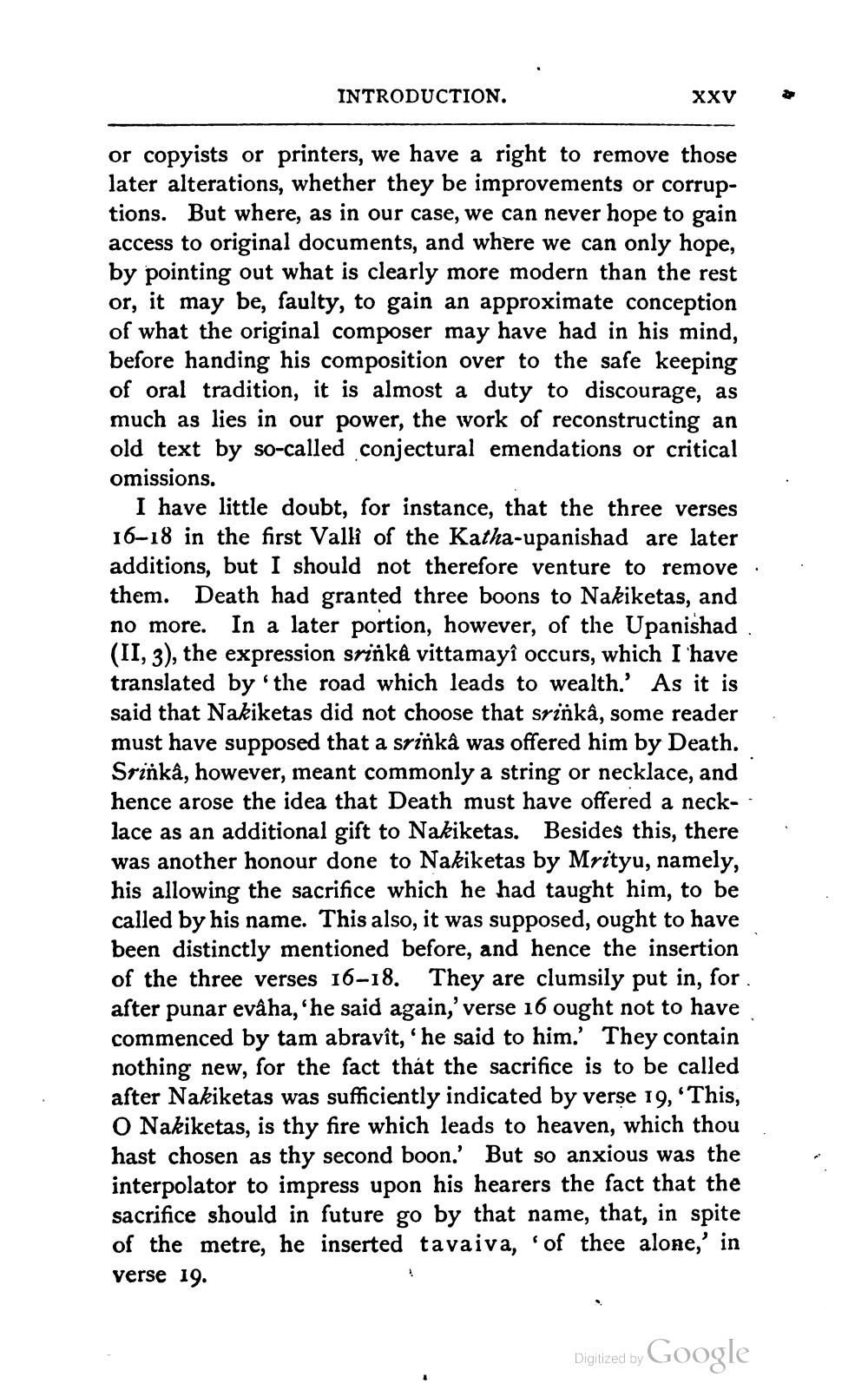________________
INTRODUCTION.
XXV
:
or copyists or printers, we have a right to remove those later alterations, whether they be improvements or corruptions. But where, as in our case, we can never hope to gain access to original documents, and where we can only hope, by pointing out what is clearly more modern than the rest or, it may be, faulty, to gain an approximate conception of what the original composer may have had in his mind, before handing his composition over to the safe keeping of oral tradition, it is almost a duty to discourage, as much as lies in our power, the work of reconstructing an old text by so-called conjectural emendations or critical omissions.
I have little doubt, for instance, that the three verses 16-18 in the first Valli of the Katha-upanishad are later additions, but I should not therefore venture to remove them. Death had granted three boons to Nakiketas, and no more. In a later portion, however, of the Upanishad (II, 3), the expression srinkâ vittamayî occurs, which I have translated by the road which leads to wealth. As it is said that Nakiketas did not choose that srinka, some reader must have supposed that a srinkâ was offered him by Death. Srinkâ, however, meant commonly a string or necklace, and hence arose the idea that Death must have offered a necklace as an additional gift to Nakiketas. Besides this, there was another honour done to Nakiketas by Mrityu, namely, his allowing the sacrifice which he had taught him, to be called by his name. This also, it was supposed, ought to have been distinctly mentioned before, and hence the insertion of the three verses 16-18. They are clumsily put in, for. after punar evâha,'he said again,' verse 16 ought not to have commenced by tam abravît,' he said to him.' They contain nothing new, for the fact that the sacrifice is to be called after Nakiketas was sufficiently indicated by verse 19, 'This, O Nakiketas, is thy fire which leads to heaven, which thou hast chosen as thy second boon.' But so anxious was the interpolator to impress upon his hearers the fact that the sacrifice should in future go by that name, that, in spite of the metre, he inserted tavaiva, of thee alone,' in verse 19.
Digitized by Google




